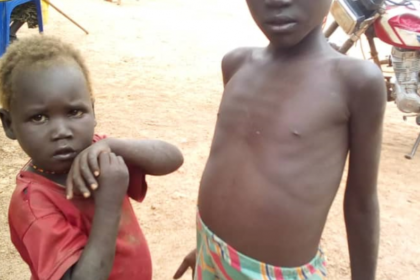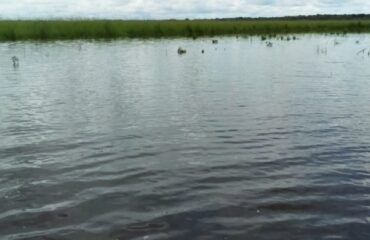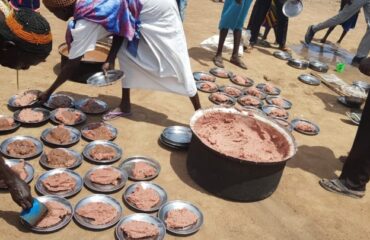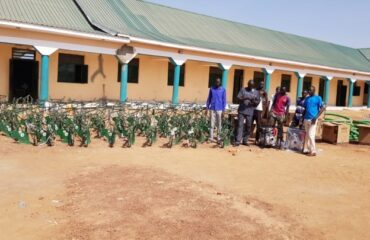
As armed conflicts, mass displacement, and disasters take an ever heavier toll among South Sudanese communities, humanitarian intervention remains an important cornerstone for the survival of the majority poor. Over the last three years, since 2013 when the current conflict broke out, CMW has increased it’s expertise and capacity to support local communities who are facing humanitarian needs through the help of individual friends, NGOs and churches. This experience gives CMW the ability to reach out to various groups and organization to solicit for support on behalf of the larger South Sudanese communities, depending on the local context. Under this programme CMW provide short term assistance to local communities in need for example the IDPs in Aweil as well as poor and most vulnerable communities in the Greater Northern Bhar el Ghazal region. Through the assistance of our one time partners in USA and Europe CMW has managed to provide farm implements such ox ploughs, maloda, axe, hoes, and slashes, seeds, and fishing gears to local communities in Aweil Central, Aweil East and South.
Under this programme CMW provide short term assistance to local communities in need for example the IDPs in Aweil as well as poor and most vulnerable communities in the Greater Northern Bhar el Ghazal region. Through the assistance of our one time partners in USA and Europe CMW has managed to provide farm implements such ox ploughs, maloda, axe, hoes, and slashes, seeds, and fishing gears to local communities in Aweil Central, Aweil East and South.
Famine was declared in South Sudan in February 2017, but was contained months later thanks to massive humanitarian support from the international community. However, food insecurity remains at extremely high levels. Half of South Sudan’s population is now severely food insecure according to the latest Integrated Food Security Phase Classification (IPC), which estimates 6 million people who were experiencing crisis or emergency levels of food insecurity from June to July 2017. Of particular concern are the 45 000 people who are experiencing a Catastrophe, which could deteriorate to famine without immediate humanitarian access and assistance.
Livestock, particularly cattle, goats and sheep, are an important social and economic asset in South Sudan. However, endemic diseases (such as haemorrhagic septicaemia, contagious bovine pleuropneumonia, anthrax are undermining livestock production, thus threatening the livelihoods of 65 percent of South Sudan’s population.
The current conflict has caused abnormal migration, heightening tensions between herders and settled farmers and increasing instances of disease outbreak. Local and national capacity to monitor, control and respond to these diseases is severely limited; to address this CMW is proposing to work closely with the relevant NGOs and organization to ensure a reliable and stable supply of veterinary drugs, vaccines and equipment to safeguard livestock production.


